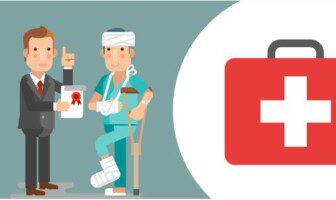
You never know how you are going to react following a car accident. But too many people make a series of mistakes following an automobile accident which later ends up harming their case and waiving their legal rights to compensation.
Don’t fall into the same trap by making yourself aware of these common mistakes. Armed with this knowledge, if you should ever fall victim to an accident, you will know what not to do to harm your case. Then one of Tapella Law’s roster of car accident lawyers can help build the strongest case possible and secure the financial compensation you deserve.
Not Calling the Police:
Even if the accident is minor and neither party sustained severe injuries, call the police. When the police are called, they make a police report outlining the circumstances which led to the accident. This can be used later to refute any false claims made by the other party to mitigate responsibility.
Admitting Responsibility:
If the accident wasn’t your fault, it is essential that you don’t accept any part of the responsibility when discussing the accident with the other party. Even an innocent apology can later be used as an admission of fault.
Discussing Your Injuries at the Scene:
In the immediate aftermath, when the other driver is asking if everyone is okay, it is easy to just say yes if the injuries are minor, in an effort to calm the other driver and alleviate their stress. Don’t discuss any injuries at the scene. Just tell them you are not sure and see a doctor at the earliest opportunity.
Not Seeking Immediate Medical Attention:
If you have symptoms of injury, even if they are minor, it is imperative you seek immediate medical attention. If you wait, this indicates that your injuries were very minor and had no impact on your daily life. If you later suffer from debilitating injuries or pain as a result of the accident, it will be difficult to prove if you did not seek medical attention immediately.
Not Exchanging Insurance Details:
In the aftermath of an accident, no matter how inconsequential the damage appears, it is important to exchange names, phone numbers, license numbers, insurance information, and the make and model of the car.
Damages that were not immediately visible and injuries that were masked by a rush of adrenaline can emerge on closer inspection. It is important you have the relevant information just in case you need it.
Not Taking Pictures:
Taking photos of the scene of the accident can help prove your version of events at a later date. You should take care to photograph the condition of both vehicles, the road where the accident occurred, and the position in the road each vehicle was in following the crash.
Speaking too Freely with Your Insurance Company:
You have to contact your insurance company following an accident and inform them. However, it is best not to get into too much detail surrounding the circumstances before you have spoken to an attorney. They will be able to liaise with the insurance company on your behalf and determine what information they need to know.
Not Hiring an Attorney:
This is perhaps the single biggest mistake people make. An experienced attorney will be able to accurately assess the value of your claim and negotiate a fair settlement on your behalf. If you do not seek out a lawyer, you could end up agreeing to a settlement far less than your case is worth.
Not Pursuing Everything You are Entitled to:
Many people don’t realize exactly what compensation they are entitled to following an accident, and as a result, don’t seek compensation for everything available. Following an accident, you are entitled to any out of pocket expenses invoked as a result of the accident, including medical bills, loss of income, property loss, and pain and suffering, among others.
Signing a Medical Records Authorization:
Once you have signed a medical records authorization, the insurance company will have access to your previous medical records. This could be used against you. The insurance company could try to use pre-existing injuries or conditions to avoid taking responsibility for your injuries. An attorney can help you decide whether or not signing a medical records authorization form will help or harm your case.
Read Also:




























